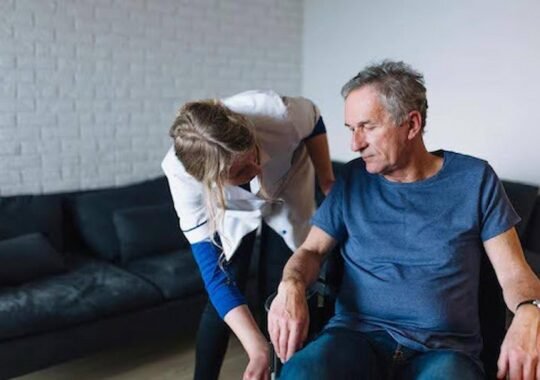Have you ever thought about how your healthcare career can make a direct impact on Aboriginal and Torres Strait Islander communities? Gaining specialised knowledge and skills allows you to play a key role in addressing health disparities in these communities. Understanding their unique needs is vital for delivering care that is not only effective but also respectful of their culture and traditions.
This is where enrolling in an Aboriginal health course can help you bridge the gap and make a significant difference in their lives. Taking this course can provide you with the specialised knowledge and skills needed to support these communities in meaningful ways. Let’s read about their benefits in detail.
Gain Cultural Understanding and Awareness
One of the top benefits of this course is that it gives you the chance to develop a deep understanding of Aboriginal and Torres Strait Islander cultures. You will explore their unique values, beliefs, and practices related to health and wellbeing. This knowledge helps you work more effectively within these communities by respecting their traditions. By learning about their history, you will be able to approach healthcare with a more culturally sensitive mindset.
Enhance Your Career Opportunities
Enrolling in this specialised course opens up numerous career opportunities in the health sector. Healthcare organisations are increasingly recognising the need for professionals who are equipped to work with diverse populations, especially Aboriginal and Torres Strait Islander communities. As more employers seek staff with cultural competence, completing an Aboriginal course can make you stand out in the competitive job market.
Make a Positive Impact on Communities
One of the most rewarding aspects of taking this course is the ability to make a tangible difference in the lives of Aboriginal and Torres Strait Islander people. You will learn how to address health disparities and provide culturally appropriate care. This means that you can directly contribute to improving the outcomes and reducing inequalities. Whether in remote communities or urban centres, your expertise will play a key role in promoting better wellness for these populations.
Develop Practical Skills for Real-World Applications
This course provides not only theoretical knowledge but also practical skills that you can apply in real-world healthcare settings. You will learn how to assess the health needs of Aboriginal patients and design effective care plans tailored to their unique needs. Additionally, you will gain insight into the issues faced by these communities and how to navigate the complexities of delivering healthcare in remote or culturally diverse settings.
Foster Trust and Cultural Sensitivity in Care
Strong relationships between healthcare professionals and patients are key to delivering effective care. Through this health course, you will learn how to build rapport and trust with Aboriginal and Torres Strait Islander patients. Understanding cultural nuances and being sensitive to specific needs will help you connect better with patients and their families. Showing respect for their cultural identity helps create a supportive environment where patients feel understood and empowered to take control of their wellness.
Contribute to Closing the Gap in Health Inequality
A primary goal of this health course is to equip healthcare professionals with the tools to address the disparities between Aboriginal and Torres Strait Islander peoples and the broader population. By gaining expertise in culturally appropriate care, you can contribute to efforts aimed at closing the said gap. This includes tackling issues such as high rates of chronic disease, mental health challenges, and poor access to healthcare services.
Enrolling in an Aboriginal health course offers significant advantages that extend beyond professional development. It allows you to gain cultural insights, enhance your career prospects, and make a meaningful impact on communities. By completing the course, you will be equipped to contribute to closing the gap in the outcomes and fostering better relationships within these communities.




